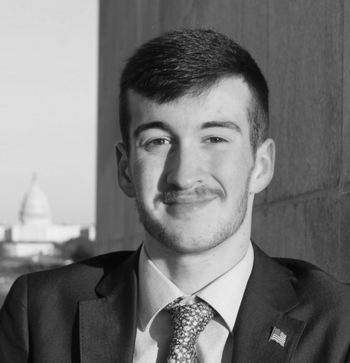Transgender students use on-campus 'name change clinic'
An LGBTQ+ student organization recently hosted a 'name change clinic' at the University of Toledo’s College of Law.
Campus Reform spoke with a transgender individual who attended the event to get his perspective on name changes and the trans movement as whole.
An LGBTQ+ student organization recently hosted a “name change clinic” at the University of Toledo’s (UT) College of Law.
Legally changing one’s name is a step gender-nonconforming students sometimes take to affirm their perceived identities.
OUTLaw, the student organization in question, provided members of the local community interested in changing their name with “free legal assistance to participants under the supervision of practicing attorneys,” according to WTOL11.
Campus Reform asked multiple parties how the legal assistance was funded, but no answers were received.
On top of the assisted name-changing, those present at the Ohio event were also granted access to a community closet, which included “clothes for transgender and non-binary members to take for free if they chose.”
[RELATED: UPenn ‘gender conforming’ closet provides tucking tape to trans students]
Fashion designer Jerra Kaitlynn Whittaker, a biological male who legally changed his name and identifies as female, was present at the event and interviewed by WTOL11.
Campus Reform also spoke with Whittaker about his experience and perspective on the name change clinic.
“I got involved to help others in their transition journey. I walked that path a long time ago and I know the importance of the progression in that process,” Whittaker said.
Since Whittaker does not have a law license, he was only present at the event to support the students and community members who were interested in partaking in the “complicated” process.
He said, “The transition process is complicated to say the least. It is that way on purpose because it weeds out the people not ready or not trans.”
According to Whittaker, only individuals with “informed consent documentation” from a relevant professional, such as a therapist, are eligible for the name change process.
After discussing the event, Whittaker offered his thoughts on the transgender movement as a whole, arguing that “people have been [misled] and fed incorrect information for political reasons.”
Specifically, Whittaker took a stance in favor of the use of “hormone blockers” with younger children.
“The hormone blockers are the same substances used to slow disease progression and have decades of data. I think it allows young people time to make a decision and not have to endure permanently changed body features,” Whittaker said. “It save[s] surgery later in life.”
He continued by emphasizing that “[i]t’s a temporary process with huge benefits.”
Despite Whittaker’s claims, data shows that puberty blockers do have negative effects on children.
According to the Mayo Clinic, for instance, hormone blockers can cause long-term weight gain and fertility issues.
Campus Reform reached out to every individual and institution mentioned for comment. This article will be updated accordingly.
Follow Logan Dubil on Twitter.

